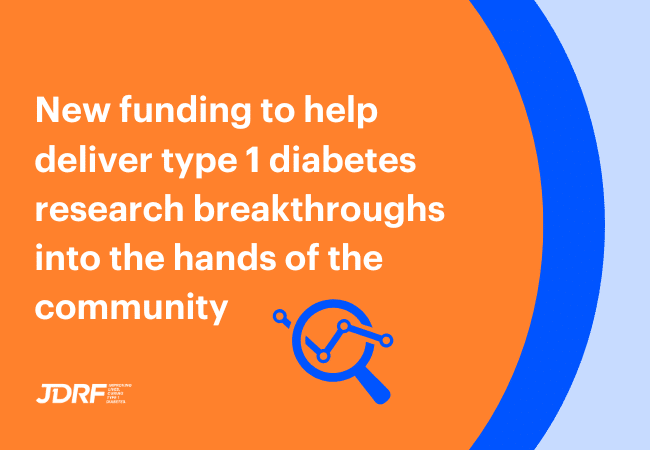Your growing teen, an increasing appetite, and type 1 diabetes

Being a parent of a teenager means bigger kids, bigger sleep-ins – and bigger grocery bills. Growing bodies need fuel, and teens are renowned for their increased appetites. It’s just a part of life for families with an adolescent!
But if your teen lives with type 1 diabetes (T1D) and you find them gazing into the fridge or pantry more often, you’ll need to have bit of think about what they’re eating.
You could start with bigger main meals – these can help stop (or slow down!) between-meal or late night snacking. And as an upside, they’re more likely to eat more nutritious foods when they’ve been prepared as part of a family lunch or dinner.
Before we share more tips, please note: While an increased appetite is a normal part of puberty, it can also be a symptom of chronic high blood glucose levels (BGLs). If this might apply to your teenager, talk to your T1D healthcare team.
Your T1D teen’s changing needs
If your teen’s increased appetite appears suddenly it can be a scramble to work out the best way to fill their tummies. When they’re eating more food at mealtimes, or just eating more regularly in general, their insulin requirements are going to change. This is nothing to be worried about – it’s how we work with T1D to make sure they’re balancing their nutrition and insulin needs.
And don’t forget that a lot of growing also takes place during adolescence, which is also going to change their insulin requirements, too!
This growth means insulin to carb ratios will need to be assessed, and long acting or basal rates will have to be adjusted. As your teenager tries new foods and eating out with friends, there may be a period of trial and error. Talk to your healthcare team for personalised advice.
7 tips for hungry teens who live with T1D
Here are our top pieces of advice for fostering healthy food habits during those ravenous teenage years.
1. Stick with a healthy routine
Try to continue the habit of three healthy and substantial meals with smaller snacks. Increase serving sizes to match your teen’s appetite while keeping the meals balanced. Make sure that main meals at least include a serving of protein, as it helps keep us fuller for longer.
2. Hydration is super important
Thirst can easily feel like hunger to a dehydrated body. Regular water consumption throughout the day is key.
3. Encourage them to be involved
The teenage years are the perfect time to take an interest in meal planning, grocery shopping and cooking. This will help foster a balanced diet and build valuable life skills. But don’t be too put off if your teen resists your requests for help in the kitchen – just keep trying!
4. Look for healthier convenience food
Teens are often busy and impatient, so stock up on handy foods they can eat on the go, like boiled eggs, sliced meats, fruit, and healthy crackers. If your child is regularly eating meals away from home (take aways, or at work or a friend’s house), try to support them to accurately carb count these meals. You may not like their food choices, but at least they’ll know you’re willing to support them to manage their T1D, which is important during this difficult stage of life.
5. Pay attention to your teen’s eating habits
Continue to monitor their eating habits and patterns, even as they become more independent. If you’re ever concerned and think they are developing an unhealthy relationship with food, talk to your teen and seek professional help as needed.
6. Share meals regularly
The dinner table is a wonderful place to gather regularly as a family. Enjoying a meal together encourages open communication and balanced eating.
7. Be a good role model
There’s no point preaching healthy eating if you’re skipping meals, binging or not eating a balanced diet yourself. The reality is that your child will likely adopt a similar relationship with food that you’ve modelled to them in these formative years.
Read more





